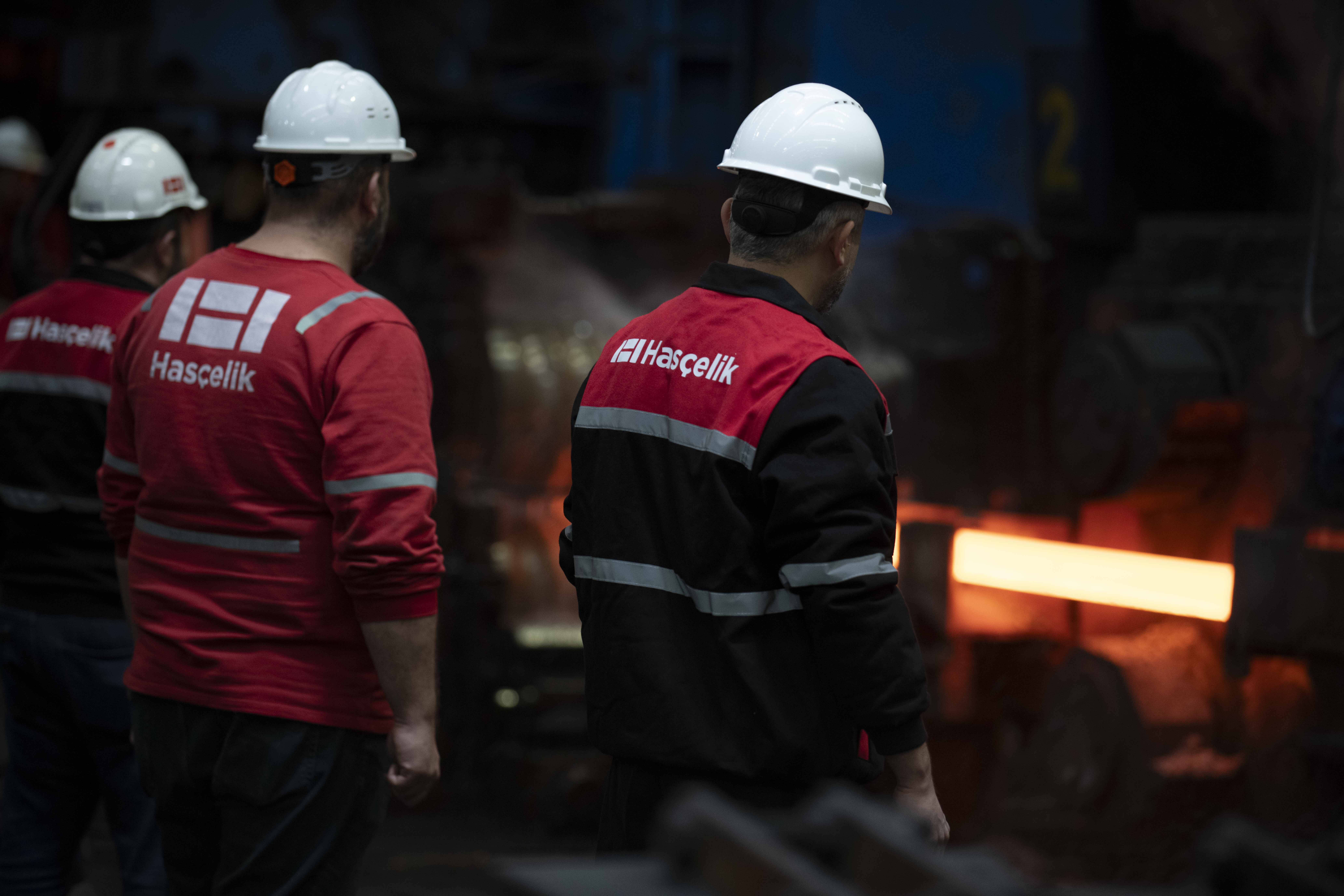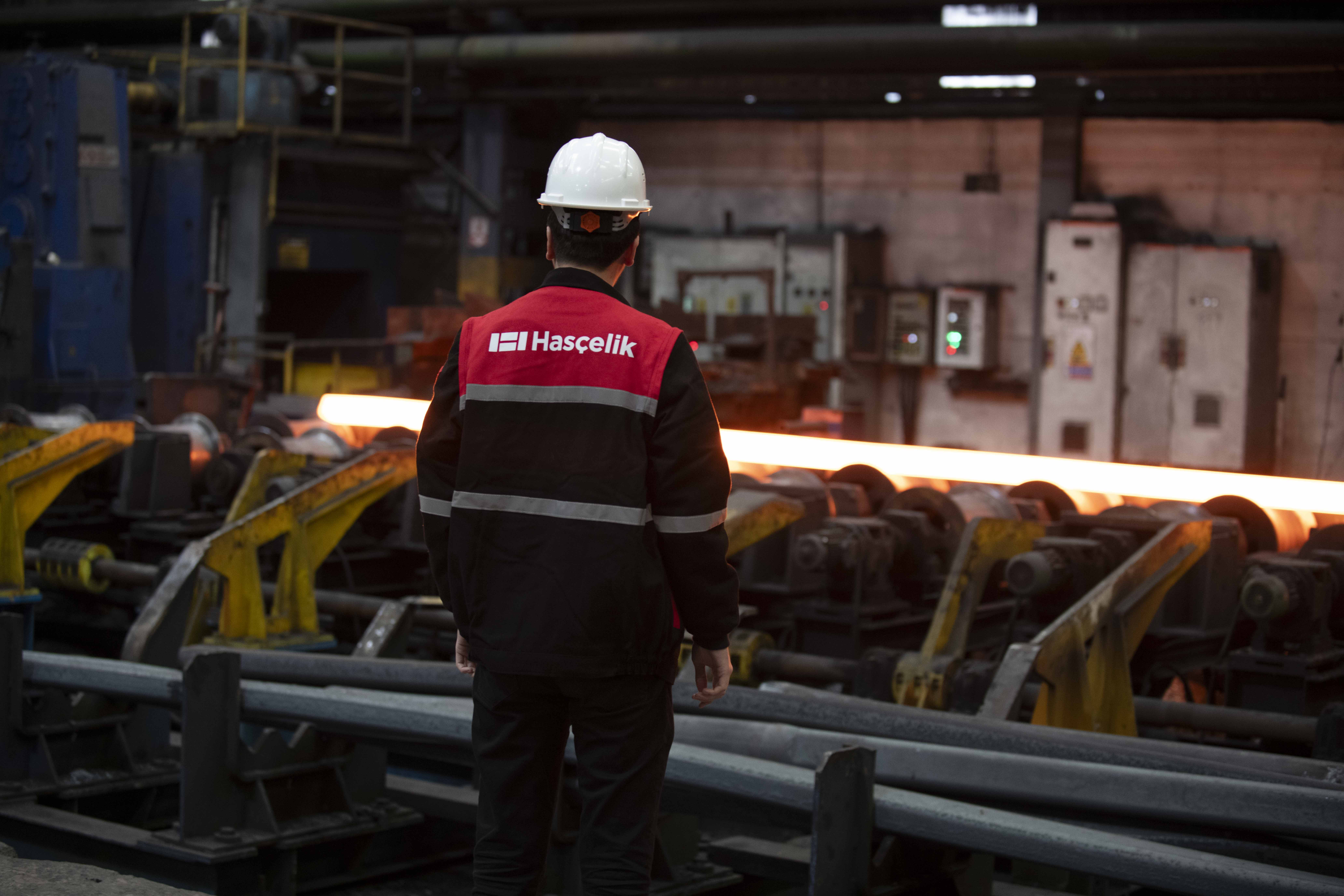Search on site
Products
S235JR (St37-2) – 1.0037 steel is a low-alloy construction steel widely used in a variety of industrial and construction applications. This steel type is known for its good weldability and machinability.

S235JR:
The letter "S" stands for "Structural," indicating that the steel is a construction steel.
The number "235" represents the minimum yield strength, i.e., 235 MPa (megapascals).
The symbol "JR" refers to the toughness and impact resistance of the steel. "JR" means that the steel meets a certain level of toughness when tested at room temperature (20°C).
St37-2:
The letters "St" stand for "Steel."
The number "37" indicates the approximate tensile strength of 370 N/mm², based on the German DIN standard.
Properties of S235JR Steel
S235JR steel , produced according to the EN 10025-2 standard, belongs to the class of construction steels according to European standards. Key properties include:
Weldability: S235JR has excellent weldability, making it ideal for welding applications.
Machinability: Due to its low carbon content, it has good machinability and can be easily processed and shaped.
Cost-effectiveness: It is a cost-efficient steel type.
Corrosion Resistance: As a low-alloy steel, it has limited corrosion resistance. However, its corrosion resistance can be enhanced through surface treatments or galvanization.
Availability: S235JR steel is widely used and readily available.
S235JR steel is commonly used in the construction industry due to its strength and durability. Its applications include:
Roof Structures and Cladding: It is often used in roof constructions and coverings.
Structural Components: It is used to make structural elements such as door handles and chassis parts.
Machine and Equipment Parts: S235JR is also used for components in machinery and equipment.
Due to its low carbon content and good mechanical properties, S235JR steel is a reliable material in a wide range of applications, from general construction projects to machinery production. Its compliance with international standards makes it highly sought after for various industrial uses.
S235JR steel offers a wide range of applications in various sectors due to its excellent mechanical properties:
Construction and Civil Engineering: Used in various construction projects, including bridges, buildings, and infrastructure facilities.
Automotive Industry: Preferred for the production of chassis and other load-bearing components that require high strength.
Mechanical Engineering: Used in the production of equipment and machine components.
Pipes and Coatings: Suitable for making pipes used in transporting water, gas, and liquids.
General Engineering: Used in various engineering projects, especially for load-bearing and structural elements.

This steel is a very popular choice across many industries due to its versatile properties and broad range of applications.
S235JR has different equivalents in various countries and standards. These include:
|
EN / EU |
Germany / DIN |
SAE / AISI |
|
S235JR |
St37-2 |
1015 |
The mechanical properties of S235JR steel are designed to meet the requirements of construction and engineering projects:
Yield Strength:The minimum yield strength of S235JR steel is 235 MPa, meaning the steel can withstand this level of stress before it undergoes plastic deformation. This value indicates the point at which the steel starts to flow under load.
Tensile Strength:The tensile strength represents the maximum stress the steel can withstand before breaking. For S235JR steel, tensile strength typically ranges between 360-510 MPa, indicating how much stress the material can handle before it fractures.
Impact Strength: The "JR" code means the steel can absorb at least 27 Joules (J) of energy during a Charpy V-notch impact test at 20°C. This shows the steel's resistance to sudden loads and its fracture toughness.
Elongation: The minimum elongation value for S235JR steel is typically between 20-22%. Elongation indicates how much the material can stretch without breaking, demonstrating its ductility.
Hardness: The hardness of S235JR steel is typically measured on the Brinell scale (HB), with values ranging between 120-160 HB. Hardness indicates the material's resistance to surface deformation under applied force.
S235JR steel is an ideal material for general engineering and construction projects. With its low cost, good mechanical properties, and wide range of uses, it provides a reliable and efficient solution for many applications. The selection of this steel should be based on the specific project requirements while adhering to relevant standards.
The chemical composition of S235JR steel is a key factor that determines its mechanical properties and machinability. This composition affects the steel's durability, strength, weldability, and other physical characteristics. Below are the basic chemical components of S235JR steel and the properties each component imparts to the steel.
This table shows the general limits for the chemical composition of S235JR steel. Small deviations in these values may occur depending on the project and manufacturer.
|
Element |
C |
Mn |
Si |
P |
S |
|
Maximum (%) |
0.17 |
1.40 |
0.35 |
0.045 |
0.045 |
Founded in 1968, HASÇELİK manufactures a wide range of products and high-quality alloy steels. This includes S235JR steel, which the company offers in both domestic and international markets. HASÇELİK provides S235JR steel products at competitive prices. In summary, the pricing is competitive and customer-oriented. For stock and price information, you can quickly contact us via our communication channels.